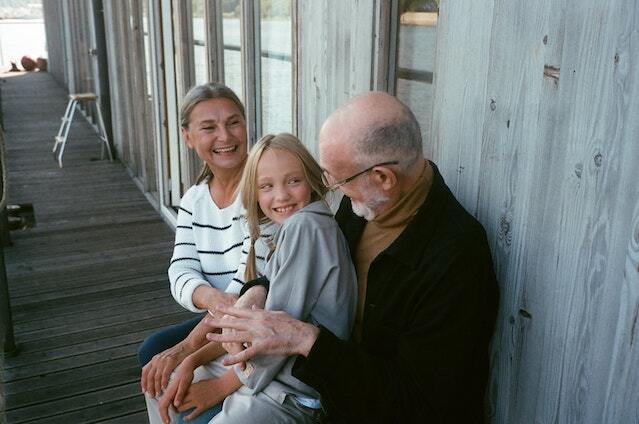Grandparents Rights
Grandparents Rights Australia
According to the legislation of the Family Law Act 1975, there is nothing specific that refers to grandparents’ rights to see or care for their grandchildren. In fact, parents themselves do not have automatic parental rights; instead, they have responsibilities towards their children. The main focus here is the rights of the child. A child has the right to see and spend time with extended family members and other important people in their lives, including grandparents.
The Act states:
“Children have a right to spend time on a regular basis with, and communicate on a regular basis with, both their parents and other people significant to their care, welfare and development.”
Elsewhere in the legislation, grandparents are mentioned specifically as examples of people concerned with the care, welfare, and development of the children.
A grandparent is legally defined as the parent of the mother or father of the child. A child typically has four biological grandparents, whether living or deceased, and may also have non-biological grandparents.
Not having an automatic right to see their grandchildren does not mean grandparents are unable to do anything. Grandparents have the right to apply for a court order to communicate with or spend time with their grandchildren.



How to Apply for Grandparents Rights
Understand Your Rights: Familiarize yourself with the legal rights of grandparents under Australian family law, including the right to apply for custody or visitation.
Legal Advice: Consult with a family lawyer experienced in grandparents' rights to get tailored advice and understand the legal process.
Mediation and Negotiation: Attempt mediation with the child’s parents to reach an agreement regarding visitation or custody, as courts often prefer mutually agreed solutions.
File an Application: If mediation fails, file an application with the Family Court or Federal Circuit Court, requesting orders for custody or visitation.
Attend Court Hearings: Be prepared to attend and participate in court hearings, where you'll present your case for why the grandparent-grandchild relationship should be maintained.
Reasons Grandparents Can File for Custody of Grandchild
Grandparents can file for custody of their grandchild under specific circumstances where the court deems it in the best interests of the child. Here are some common reasons:
Parents are unable to care for the child: This could be due to physical or mental health issues, substance abuse, incarceration, or death.
Child is at risk of harm: If the child is experiencing abuse, neglect, or is in a dangerous environment while in the care of their parents, grandparents may seek custody to ensure the child's safety and well-being.
Parents voluntarily give up custody: In some cases, parents may be willing to relinquish their parental rights and agree to their parents (the grandparents) taking custody of the child.
Child has been living with grandparents for an extended period: If the child has been primarily residing with and being cared for by their grandparents for a significant duration, the court may consider this a factor in granting custody to the grandparents.

Let us Help You
Reach out for an exploratory conversation.
Grandparents Rights Options
Parenting Order
A parenting order can be made to grant custody of the child to the grandparent. In such cases, a grandparent can receive full or shared custody of their grandchild. This becomes necessary when the child’s parent is unable, unwilling, or lacks the capacity to care for them. To grant such an order, the court must be satisfied that the child’s parent falls into one of these categories and cannot meet the child’s emotional, intellectual, developmental, or financial needs.
The court generally prefers to ensure the child maintains a meaningful relationship with their parents whenever possible. However, in cases involving abuse, neglect, family violence, or substance abuse, the court is more likely to grant a parenting order for custody in favor of the grandparents.
If both the parents and grandparents of a child agree on arrangements, contact, custody, and communication, they can apply to the court for a parenting order by consent. This process does not involve a hearing, and the agreement is registered with the court. A parenting order by consent formalizes the agreement made between the parents and grandparents.
Parenting orders, whether determined by a judge or made by consent, are enforceable by law.
Parental Responsibility
When a parenting order designates a grandparent as the child’s primary caregiver, the court may also grant parental responsibility to the grandparent. Parental responsibility and custody are not the same. Having parental responsibility means having the legal authority, duty, and responsibility that a parent typically has concerning their child. It involves making significant decisions about the child’s life, such as their education, religious and cultural upbringing, and medical treatment. If a grandparent is given parental responsibility for their grandchild, they do not need to consult with the child’s parents before making decisions for the child.
Parenting Plan
While parenting plans are recognized in family law legislation, they are not enforceable by law. A parenting plan is a written document that outlines the arrangements agreed upon by parents and grandparents for the child.
Creating a parenting plan does not require going to court, as it is developed jointly. However, it is important to note that if the agreement is made under any threat, duress, or coercion, it is not legally considered a parenting plan. Grandparents can use a parenting plan as a means to secure their rights. It provides a way for grandparents to solidify their rights to see their grandchildren without the need for a court process, provided they can come to an agreement with the child’s parents.
Related Services
Mother’s Rights After Separation
We believe that every child deserves every mother's love and care, ensuring a nurturing and secure future for both. Our services are uniquely designed to address the specific needs of mothers after separation.
Father’s Rights
A father's role in raising a child is equally important, contributing significantly to their growth and overall well-being. We specialize in advocating for fathers' rights, understanding the unique challenges they face in family law matters. Our approach is tailored to reinforce the significant role of fathers, ensuring they receive fair and equitable treatment in custody, visitation, and child support cases.
Child Relocation After Divorce
Every child deserves ample time with each parent after separation .Our services focus on balancing the complexities of child relocation after divorce, ensuring fair outcomes for both parents and children.

